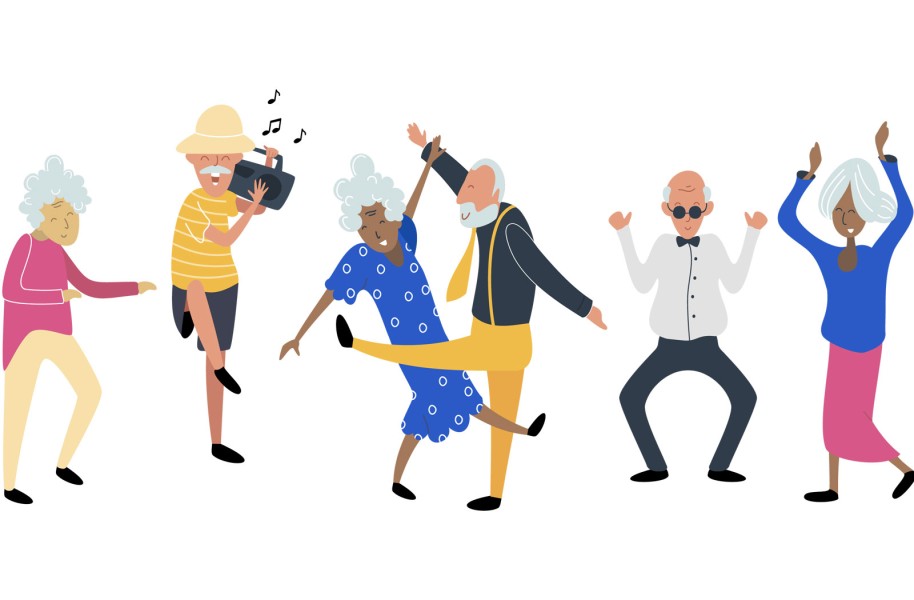When Generation Alphas (those born from 2010) start joining the workforce some time around 2026, we will see five generations working together in the UK for the first time in modern history.
This multi-generational workforce should be something to celebrate. A workplace with age diversity brings with it many benefits and should present a distinct advantage for organisations that can truly embrace it. The wide range of knowledge and ideas in a multigenerational workforce combines to provide an organisational culture that is a hotbed of creativity and human understanding, where different generations bring different skills and experiences to the table.
For example, younger employees who grew up as digital natives might bring technology skills whereas older employees might have great applied business intuition that has taken years to develop. Evidence suggests that older employees are also better at client relationship management and are more comfortable and skilled at having difficult conversations.
Open the door
Sadly, age discrimination is absolutely rife in the UK. A recent survey by the Chartered Management Institute revealed the shocking extent of age discrimination in the UK job market. The data, taken from a survey of over 1,000 hiring managers in UK organisations between October and November 2022, highlighted that just 42 per cent were open to hiring people aged between 50 and 64 years old.
This age group accounts for more than 30 per cent of the total working age population in the UK and means that those (prejudiced) hiring managers will have reduced their available talent pool by over 11 million people. It also means those hiring managers may be breaking the law. Since 2006 (and now codified in the Equality Act 2010) it has been illegal to discriminate against someone simply because of their age.
I’m interested in why we seem to dislike older workers so much in the UK. I’ve heard so many excuses why older candidates have been rejected for job opportunities. The most common reasons were ‘over-qualified’, or ‘team fit’ or, ‘will get bored in the role’. These excuses get trotted out without any further insights or justification, time and time again.
We just don’t seem to value the skills that more experienced candidates bring to the workplace, which on the face of it, seems ludicrous. Hard earned experience, time-honed people skills, the ability (and desire) to mentor and pass along knowledge and insights.
Research commissioned by AGE UK demonstrates that whilst age discrimination is the most widely experienced type of discrimination across Europe, it is particularly troublesome in the UK, where the older workers thought of as being less competent here than in the rest of Europe.
Unburden the workers
According to The Centre for Ageing Better, in the UK, older people are generally seen as hostile, difficult and a burden on wider society. These unpleasant stereotypes are damaging, inaccurate and can have a profound impact on the wellbeing of older workers, who are thought of as having less ability to learn new skills, being more costly than younger workers and having significantly lower levels of performance.
A third of over-50s believe that their managers are not good at managing intergenerational teams and favour younger workers, and many now actively hide their level of experience when applying for new roles.
It is ironic that these prejudices are felt so strongly at a time when the workforce is ageing in the UK. We have more over-65s in employment now than ever before. In 1992, only 20% of the UK workforce was over the age of 50. Now its 30%. The reality is clear – unless older workers remain in the workforce for longer, total employment growth in the UK will slow. We should be celebrating older workers and yet they are ridiculed, ignored and denied opportunities for development and progression. According to a survey by the Department of Work and Pensions, older workers reported higher job satisfaction, and had increased job retention, which reduced overall turnover, lowered recruitment costs and had a net positive impact on workplace wellbeing. Of course, supporting older workers also benefits the economy in other ways such as providing increased tax revenues and lowering the welfare bill.
So what can we do?
The recruitment industry can play a very significant role in reducing all types of discrimination in the workplace. Sadly, still too many recruiters are willing to endorse and condone discrimination by ill-informed clients or by their own assumptions. The fear is that putting older workers forward will reduce their opportunity to fill the role and make a fee.
We have the opportunity (some would say a moral obligation perhaps) to educate and inform our clients, and explain the benefits of a diverse workforce, whilst at the same time increasing our pool of available talent. Surely that is a rare case of a genuine win-win?
At a time when there have been significant changes in the way we work and flexibility is king, providing our clients with a motivated, experienced, seasoned professional should be easier than ever. The stark reality is that if we don’t embrace older workers, we will see even greater shortages of talent, and we'll all experience the impact that has on our economy. So, whatever your motivation, be it ethical or financial, now is the time to embrace older talent.
